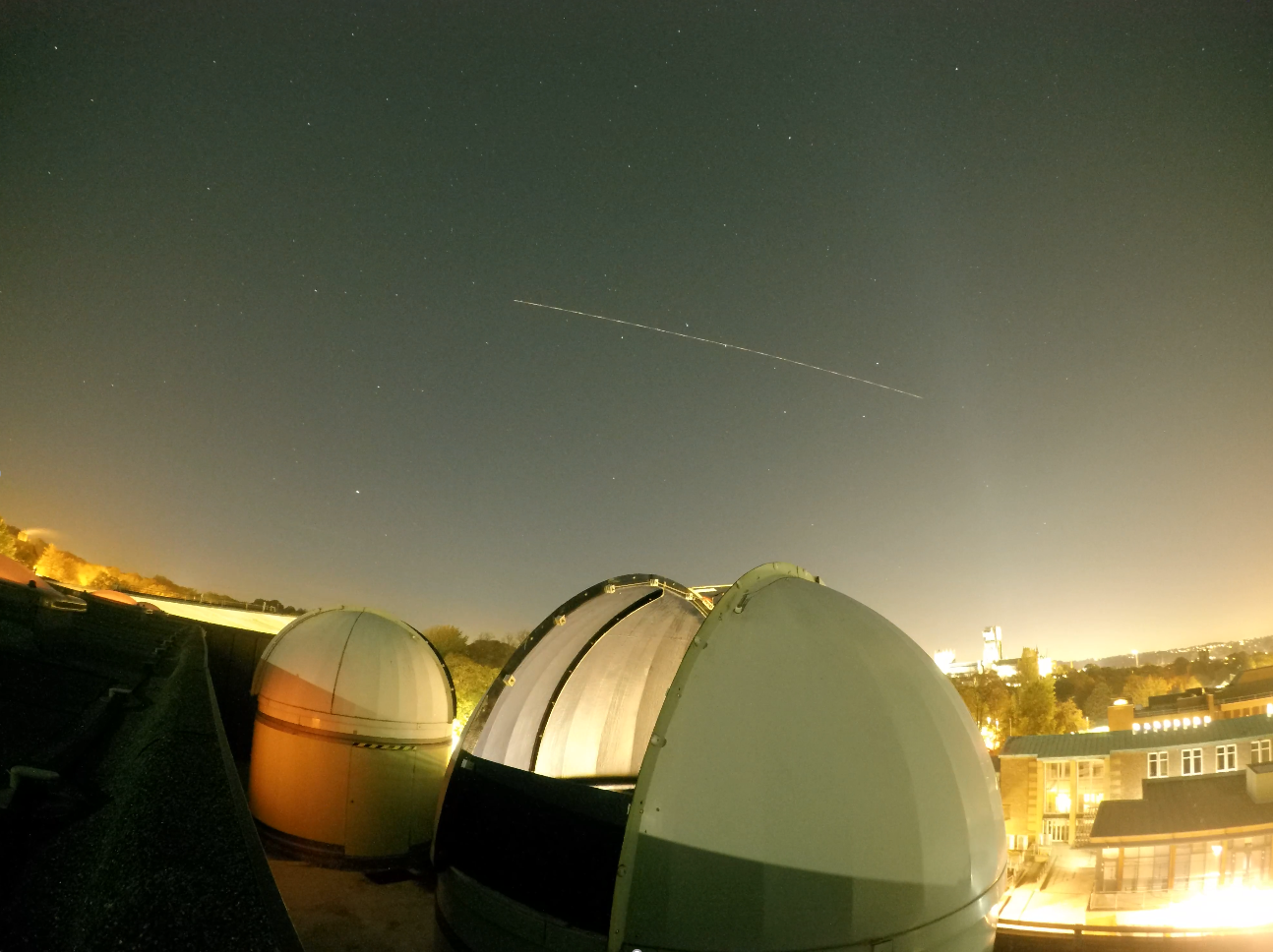AstroLab
Overview
The AstroLab is an advanced laboratory project option in which you will undertake projects in observational astronomy mainly using the telescopes on the roof of the Rochester Building. Observations should be obtained on at least seven evenings during the term, with a typical observing session lasting two hours.
A variety of observational astronomy projects are offered which focus on the dynamical nature of the universe. The objectives of the AstroLab are:
- To learn how to gather experimental data on the universe using a modern observatory.
- Make the observations.
- To reduce and analyse the observational data gathered, with emphasis on finding the uncertainty of the final results.
- To understand the wider significance of your data and convey this in a scientific report.
Projects
Projects are updated regularly, however some previous AstroLab topics have included:
-
“Orbits of Main-Belt Asteroids”
- The aim of this project is to determine the orbits of several asteroids by measuring the asteroid’s position relative to catalogued stars.
-
“Moons of Uranus”
- The aim of this project is to obtain a series of images of Uranus and its moons and study the orbital periods and parameters of each.
-
“Distance to the Hyades”
- The path of stars in Hyades, a cluster in the constellation of Taurus, can be used to estimate the distance to the cluster, known as moving-cluster parallax. The aim of the project is to determine the motions for a set of these stars and estimate the distance.
-
“Studying Exoplanets from Transit Light Curves”
- Light curves, or the change in brightness from a star, can change depending on the movement of the planets around said star. The aim of this project is to measure the depth of these light curves to determine the properties of extrasolar planets.
For more information on AstroLab, visit this page. Current students can find more information on Learn Ultra.


/prod01/prodbucket01/media/durham-university/departments-/physics/teaching-labs/VT2A9034-1998X733.jpeg)
